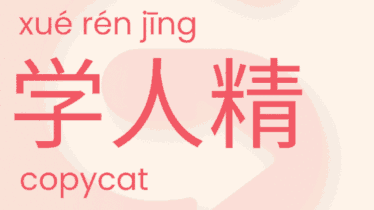Chinese greetings: How to say hello in Mandarin
It’s the start of a conversation, and as they say in some languages: a good start is half the work. Learn how to say these Chinese greetings. We list the most common Chinese greetings here, ranging from casual to formal.
PS: Also read our guide on how to say goodbye in Chinese.
Chinese greeting #1: Hello there
In Chinese: 你好Nǐ hǎo
Formalness: 5/10
Commonness: 9/10
Undoubtedly the two most well-known Chinese words abroad: 你(you) and 好(good), together meaning just something like “Hello”. Many Chinese teachers on YouTube, or blogs, make you believe this greeting is not OK to use in China, but it’s fine, especially to strangers. Walk into a store and yell: “你好,有人吗?” (Hello, anyone inside?).
To older people you don’t know, you can replace 你Nǐ with 您Nín:您好. To people you know, you can replace 你 with their name or nickname:
- 老板好 (Hello boss!)
- 王进好 (Hello Wang Jin)
- 周经理好 (Hello Manager Zhou)
- 大家好 (Hello everyone)
- 王老师好 (Hello Teacher Wang)
Learn how to say this Chinese greeting with GoEast Mandarin’s Maria:
Chinese greeting #2: Did you eat?
In Chinese: 你吃了吗?Nǐ chīle ma?
Formalness: 4/10
Commonness: 9/10
Variants: 早饭吃了吗?/ 午饭吃了吗?/ 吃过晚饭了吗?
You don’t literally need to answer this Chinese greeting with a detailed list of your breakfast or lunch — just a 对 (Yeah) is fine, for example:
Person A: Ey! 你吃了吗?Did you eat?
Person B: 对!你怎么样?Yeah. How are you?
Person A: 我还好!走吧!I’m alright! Let’s go!
Chinese greeting #3: Good morning
In Chinese: 早上好! Zǎoshang hǎo!
Formalness: 5/10
Commonness: 10/10
This Chinese greeting just means ‘Good morning’ (早上好) or just ‘Morning!’ (早!), and works exactly like you would expect a ‘good morning’ to work. In addition to greeting good morning, there’s, while 早上好 is the most common one.
Good afternoon: 下午好 or 午安
Good evening: 傍晚好
Good night: 晚上好
Chinese greeting #4: Where are you going?
In Chinese: 你去哪儿?Nǐ qù nǎ’er?
Formalness: 4/10
Commonness: 8/10
Like ‘Did you eat?’, you don’t literally need to answer this. But it does perhaps show the importance of food in Chinese culture
Person A: 你去哪儿?Where are you going?
Person B: 回家,你姐怎么样?Home. How’s your sister?
Person A: 她最近不错,她现在旅游。Good, she’s on holidays now.
Chinese greeting #5: Hey
In Chinese: 喂Wèi
Formalness: 5/10
Commonness: 10/10
One meaning of 喂 is to feed an animal, but here it just means ‘Hey’ and it’s totally unrelated. One important detail about this Chinese greeting: 喂 is only used for picking up the phone! Additionally, it can be: 喂你好 (Hey, you good?)
Chinese greeting #6: Long time no see
In Chinese: 好久不见Hǎojiǔ bùjiàn
Formalness: 5/10
Commonness: 8/10
Fun fact: Long time no see is actually a literal translation from Chinese. In English, this “Long time no see” makes no sense, but it was brought into the English language from travellers in China.
Chinese greeting #7: How have you been lately?
In Chinese: 你最近怎么样?Nǐ zuìjìn zěnme yàng?
Formalness: 6/10
Commonness: 8/10
This Chinese greeting works quite like in English, and there are variations such as:
- What have you been doing lately? 你最近干嘛?
- Where have you been lately? 你最近在哪儿?
- What has been keeping you busy lately? 你最近在忙什么?
Chinese greeting #8: What are you doing?
In Chinese: 啊,在干嘛? Zài gàn má?
Formalness: 1/10
Commonness: 5/10
Ey! What’s up!? Whatya doing?! That’s kinda this Chinese greeting. It’s a very colloqual expression
Chinese greeting #9: Hello
In Chinese: 哈罗Hā luō
Formalness: 5/10
Commonness: 3/10
This Chinese greeting takes inspiration from the English “Hello” and copies it phonetically. Especially popular among young Chinese in big cities.
Chinese greeting #10: May all your wishes come true
In Chinese: 万事如意Wànshì rúyì
Formalness: 5/10
Commonness: During Chinese New Year
This one (like #11) is a Chinese new year greeting, To hope all things will make you satisfied. There’s actually a video about this greeting here:
Chinese greeting #11: May you be happy and prosperous
In Chinese: 恭喜发财Gōngxǐ fācái
Formalness: 5/10
Commonness: During Chinese New Year
Although this Chinese greeting talks about happy and prosperous, actually it means to say “I hope you get a lot of money in the new year”. But also this is kinda-tongue-in-cheek in China.
Common mistakes for greeting people in Chinese
Translation sometimes goes wrong. Everyone learns a few simple, and practical Chinese phrases on their first day of lessons. What if I told you, that you might still be using them wrong? It’s a problem that’s more prevalent than you think.
For example, we’ll deal with the improper use of greetings in Chinese such as “How are you” and “Goodbye”.
How are you? (你好吗)
It is natural and polite to greet people with “How are you?” in English. However, it isn’t quite right in the Chinese context. Saying the greeting “你好吗” in Chinese to your friends indicates uncaring and unfamiliarity and might result in an awkward and stilted conversation. The reason why we teach this sentence in Chapter One of any textbook is simply to illustrate the “吗” grammar point. The very few situations that we actually used this sentence are: if you notice somebody is not feeling well or if you haven’t seen a person for a long time.
Proper greetings in Chinese almost always involve referencing specific context as opposed to generalities to show concern and care for your fellow Chinese speaker. For example, around mealtime, you would ask “吃了吗?“(Have you eaten?). Seeing people coming home around early evening, you might ask ” 下班了啊?” (Just got off work, eh?). On Mondays we’d like to greet with “你的周末怎么样” (How was your weekend?).
The key thing to remember is that you need to show care by asking about specifics.
Goodbye (再见)
Students frequently end text or email conversation with “再见” which can be translated to “see you” in English. However, in Chinese, this is a very formal way to say “Goodbye”. It’s likely that students are simply trying to indicate respect or deference to their teacher however once again in the Chinese context it’s slightly awkward and can be seen as rude. In the Mandarin Chinese language — and daily usage — the feeling that “再见” gives, is very similar to having someone abruptly close a door in your face.
Saying “再见” out loud is fine. Saying “再见” in texts is definitely not.
The polite way of ending a conversation by text is simply to stop texting when the business is done or explain why you have to go and end with “下次聊”(talk to you next time. If you are going to bed, end with “晚安” (good night).
See you later (一会儿见)
Sometimes a Chinese tutor of ours gets into a panic after receiving an email from a student who had signed off with “See you later!”. In English “see you later” refers to anytime in the future, whereas in Chinese it refers to the immediate future. It’s not that they wouldn’t be prepared (we’re always prepared :)). But to native Chinese speakers “一会儿见” (See you later) means within the next few hours or even minutes!
As your Chinese progresses to an advanced level such as HSK5 of HSK6, I would suggest you confirm your phrases in Chinese with your teacher; a simple translation will surely get into trouble. You can never be too sure when learning a new language, and as always context is everything!



